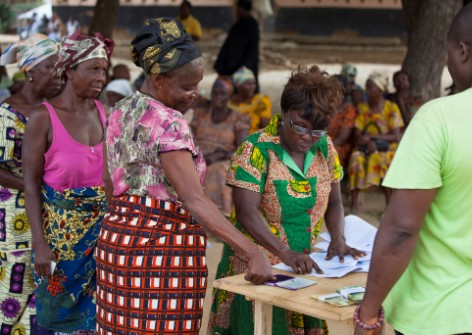
Audio By Carbonatix
Some beneficiaries of the Livelihood Empowerment Against Poverty (LEAP) programme have commended the government for increasing the cash grant from July this year.
They said they had benefitted from the programme in diverse ways and were appreciative of the government.
LEAP is to smoothen consumption, promote access to social services through linkages and stimulate behavioural change toward productive activities by the provision of cash grants to extremely poor and vulnerable households.
Beneficiaries include extremely poor, elderly, 65 years old and beyond support, orphaned and vulnerable children, persons with severe disabilities who cannot work, and pregnant women or mothers with children under age one.
LEAP is a cash transfer programme introduced by the government in 2008 for extremely poor and vulnerable households, orphaned and vulnerable children, persons with severe disabilities who cannot work, and elderly persons who are 65 years of age and older.
In July 2024, the amount paid to beneficiaries was doubled, one eligible member household, from GH₵128.00 to GH₵256.00, two-member households, GH₵152.00 to GH₵304.00, three-member households, GH₵176.00 to GH₵352.00 and four-member households GH₵212.00 to GH₵424.00 bi-monthly.
This, the Minister for Gender Children and Social Protection, Dakoa Newman, said was to provide relief and support to the beneficiaries to enable them to meet their basic needs more effectively as well as invest in their future well-being.
Mr Kwaku Opoku, a beneficiary, said his family had benefited from the programme since its inception.
He said with his wife, they managed to own a palm oil plantation on his wife’s land.
Mr Opoku said the purpose of the programme would have been defeated if they had only fed on the money without investing in a "small venture".
He said they had been empowered to an extent that when LEAP payments were delayed, no matter how small the farm was, they were able to feed from its proceeds.
‘‘I remember a friend who was sick used his share of the grant to buy medicines and feed himself; he has moved to another region, but he still receives his money," Mr Opoku recounted.
Madam Rebecca Mettle, a caretaker of four orphaned children under the programme, said catering to the needs of the children was possible because of the grant.
She said her earnings from the sale of cassava and plantain were used to buy school uniforms and to pay for the school fees of the children.
Mr Zacharia Yakubu expressed appreciation to the Government for the increase in the cash grant, attributing his well-being to the LEAP programme.
Latest Stories
-
Adom FM’s ‘Strictly Highlife’ lights up La Palm with rhythm and nostalgia in unforgettable experience
2 hours -
Ghana is rising again – Mahama declares
5 hours -
Firefighters subdue blaze at Accra’s Tudu, officials warn of busy fire season ahead
6 hours -
Luv FM’s Family Party In The Park ends in grand style at Rattray park
6 hours -
Mahama targets digital schools, universal healthcare, and food self-sufficiency in 2026
6 hours -
Ghana’s global image boosted by our world-acclaimed reset agenda – Mahama
6 hours -
Full text: Mahama’s New Year message to the nation
6 hours -
The foundation is laid; now we accelerate and expand in 2026 – Mahama
7 hours -
There is no NPP, CPP nor NDC Ghana, only one Ghana – Mahama
7 hours -
Eduwatch praises education financing gains but warns delays, teacher gaps could derail reforms
7 hours -
Kusaal Wikimedians take local language online in 14-day digital campaign
8 hours -
Stop interfering in each other’s roles – Bole-Bamboi MP appeals to traditional rulers for peace
8 hours -
Playback: President Mahama addresses the nation in New Year message
8 hours -
Industrial and Commercial Workers’ Union call for strong work ethics, economic participation in 2026 new year message
10 hours -
Crossover Joy: Churches in Ghana welcome 2026 with fire and faith
10 hours

